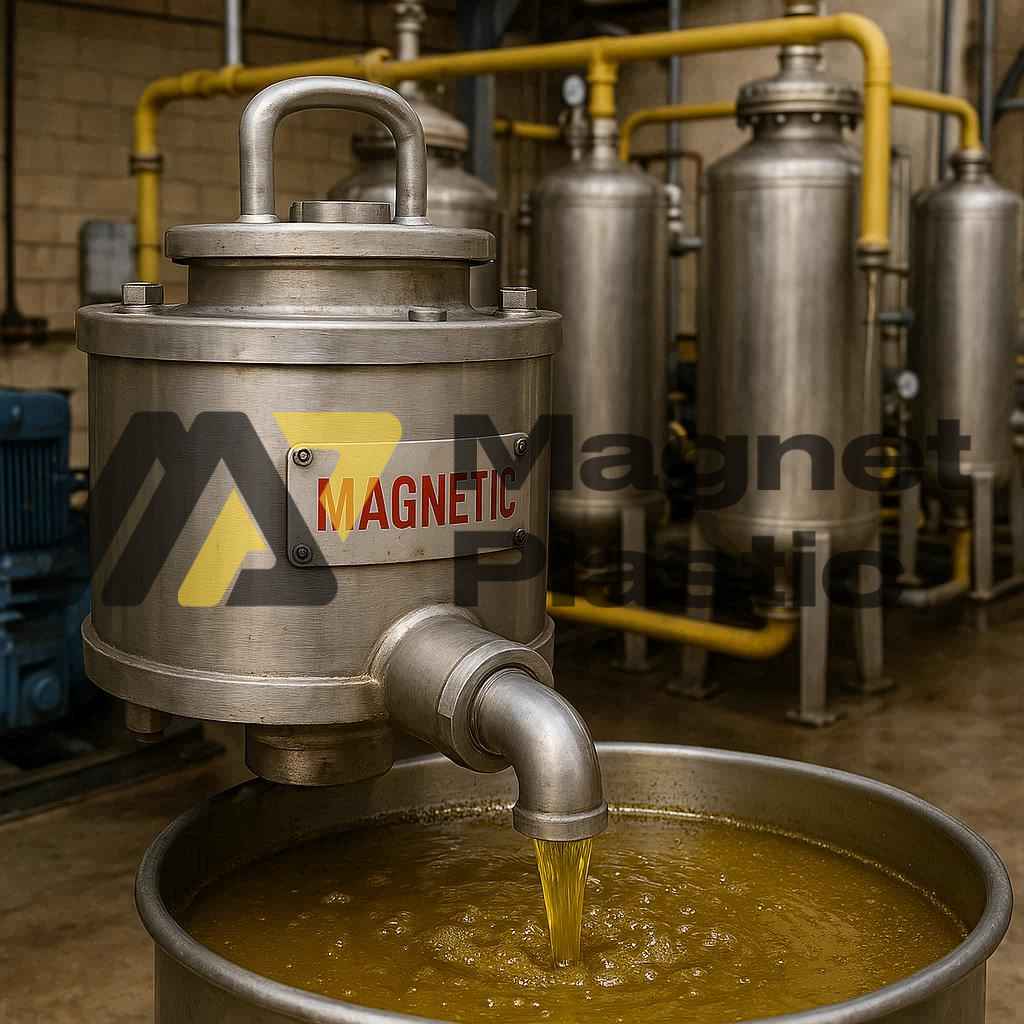The Importance of Magnets in Olive Cleaning at the Oil Mill
When olives arrive at the oil mill, one of the very first and most essential steps is cleaning. Even though the fruit may have been partially cleaned in the field using sieves, it still contains many impurities. These must be removed before crushing with the help of washing and cleaning machines. However, it is at the exact moment when the olives are about to be milled that an “invisible” yet crucial element comes into play: the magnetic separator.
These systems, installed along the production line in the form of grids or magnetic bars, are designed to capture small iron particles. By doing so, they not only prevent metallic traces from entering the oil but also protect the machines from costly damage.
A Key Role in Quality and Safety
In the food industry—and especially in olive oil production—magnetic applications are fundamental. At the oil mill, magnets prevent metallic objects from falling into the crushers, avoiding blockages and damage to the sieves, which can lead to expensive downtime. They also eliminate ferric contamination mixed with the olives, ensuring a purer, higher-quality final product.
If metallic objects enter the olive paste, they can damage pumps, decanters, or other critical equipment. In addition, the presence of iron or rust can negatively affect the oil’s taste, color, aroma, and stability, reducing both quality and shelf life.
Magnetic Separation Systems
Different types of magnetic separators are used in olive mills, each adapted to specific stages of production:
- Magnetic plates: Robust, compact, and easy to install on conveyors. Their smooth surface and strong magnetic pull ensure maximum attraction.
- Magnetic bars and grids: Positioned inside hoppers or at the entrance to crushers, they effectively intercept metal particles as olives pass through.
- Tubular magnetic filters: Made of stainless steel housings with magnetic rods inside, these systems capture metallic impurities in liquids or olive paste.
These separators are energy-efficient, requiring no external power supply. Maintenance is minimal, consisting mainly of regular cleaning of the accumulated metallic debris.
Maintenance and Efficiency
To maintain peak efficiency, magnets must be cleaned regularly. Operators should follow strict cleaning protocols, particularly at the end of each hopper cycle, when magnetic surfaces can be cleaned most effectively. Without this regular maintenance, an excess buildup could reduce magnetic efficiency and even cause trapped particles to fall back into the process.
Conclusion
The use of magnetic separators in oil mills may be discreet, but it is absolutely essential. These devices safeguard machinery, reduce maintenance costs, and—most importantly—ensure that extra virgin olive oil remains free from metallic impurities. By combining tradition with magnetic innovation, the olive oil industry guarantees safety, quality, and the excellence of one of the Mediterranean’s most iconic products.
